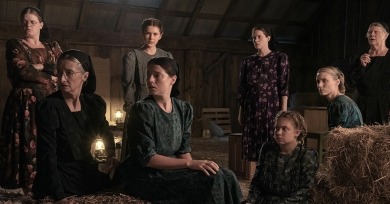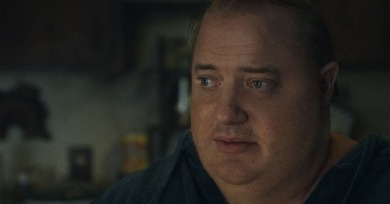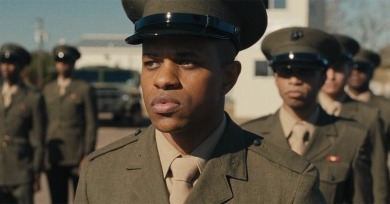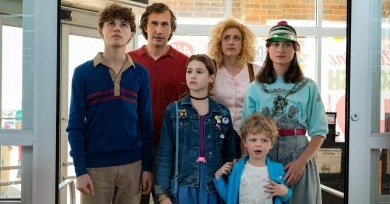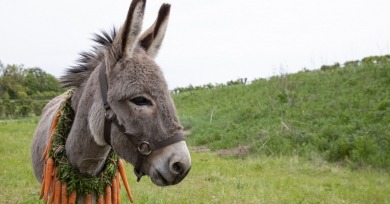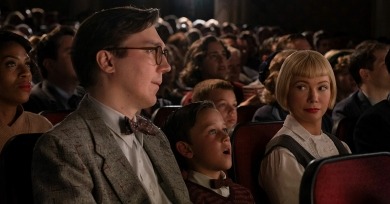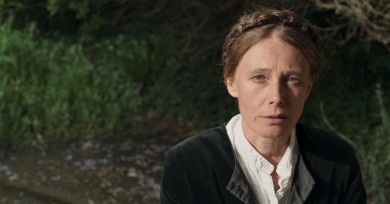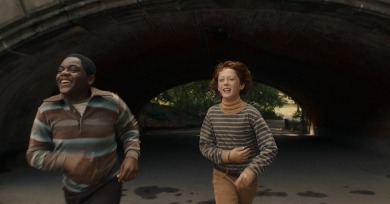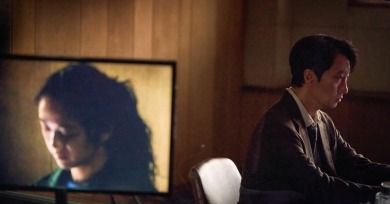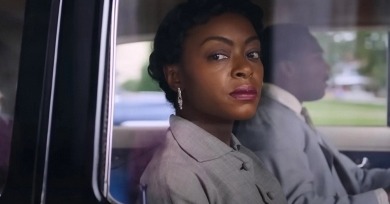Reviews
The camera is frequently in motion, shifting elements like characters, animals, vehicles, and terrain in an intricate dance. Despite the impossibility of the otherworldly imagery, every shot feels like it comes from an actual camera perspective, which lends the film its verisimilitude.
What is it to flee versus to leave? What is it to grant forgiveness or to grant permission? Their predicament is not just a binary choice, it is to consider how to build a new future according to their own definitions.
The film presents itself as empathetic towards its protagonist but has little interest in navigating the murky terrain of what it means to exist as a fat, queer person in a world that loathes you.
This is a psychological ghost story, to be sure, with classic elements of that genre; where Hogg departs from its typical analogies, however, is in her location of the mystery not in the unconscious of one person but in a relationship with an other.
It retains the impassioned clarity of her style while enlisting its primary subject as its co-author. Nan Goldin provides illuminating, clarifying, and always candid commentary on the many chapters of her life in one-on-one interviews with Poitras, conducted on weekends during COVID.
Here, cannibalism rather than vampirism is the favored protean allegory for outcast rootlessness, codependency, hormonal youthful yearning, and antsy wanderlust. Mostly it is about not belonging, with cannibalism stepping in for commoner differences.
Throughout the film, Ellis will justify his decision to join the military in terms of the meaning it will confer on his life, a meaning that is otherwise absent, it seems, because he lacks ties to bind him to anything outside of himself.
The busyness and expansiveness and deft choreography of White Noise do not quite camouflage its superficial engagement with played-out themes (consumerism, better living through chemistry, coming to terms with mortality) located in family life and couples, Baumbach’s perennial territory.
Is the jackass dreaming of the electric sheep, or is it dreaming of him? Perhaps the unfathomability of the images, and our respective, deeply personal reactions to them, are all there is.
Though this is perhaps the ultimate Spielberg film, it does not move or feel like one. He is going for something else: a thoughtfully unshowy aesthetic that heightens one’s awareness of being a viewer. Watching, we’re rarely thinking about what the camera is doing, but rather what it is showing and why.
A Couple could be uncharitably described as repetitive; Sophia returns again and again to the ways her husband wounded and slighted her, and even at a mere hour of runtime the film can feel as though it is retreading old ground. But the film is slipperier than these repetitions initially make it seem.
This is a delicately painful and painfully honest film, a portrait of innocence shading into experience set among the shadows of an American past that could scarcely feel more present.
A believable erotic tension builds in both silence and conversation. The film evinces a fascination with how people watch and learn from each other, its protagonists trying on different styles of performance.
What Deadwyler perhaps achieves most impressively in her portrayal, which she has said is drawn primarily from Mamie’s memoir, but also archival footage and photographs, is to conjure a feeling beyond the image, of Mamie’s suffering and maternal strength, without turning her into a folk hero.
